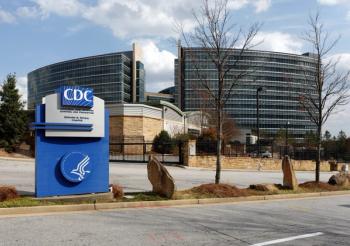
Improving Health Equity For Medically Complex Patients with Respiratory Failure
Underserved populations, such those in as rural and low-income communities, often have higher concentrations of patients with multiple medical comorbidities.1 Patients with comorbidities are also disproportionately susceptible to developing acute respiratory distress syndrome, a leading cause of respiratory failure.2
Ensuring that patients with respiratory failure have timely access to Kindred Hospitals, which provides physician-led long-term acute care and rehabilitation to medically complex patients, can improve outcomes for this vulnerable patient population, as well as decrease inpatient length of stay and readmissions.
Respiratory Failure Recovery at Kindred Hospitals
Respiratory failure is a potentially fatal condition that often has a complex recovery path. The average length of stay for patients with respiratory failure requiring mechanical ventilation is 10.5 days, and the mean 30-day readmission rate for respiratory failure is 21%.3,4 However, Kindred Hospitals has been able to achieve quality outcomes and reduce readmissions for respiratory failure patients.
At Kindred, 86% of patients on ventilators reach a high level of mobility, based on the Johns Hopkins Highest Level of Mobility Scale.5 Kindred has also achieved a 13% readmission rate for respiratory failure and ventilator-supported pulmonary diagnoses compared with the average readmission rate of 21% at referring hospitals and 26% at skilled nursing facilities.6
Initiatives that have contributed to Kindred Hospitals’ quality outcomes include:
- Disease-specific certifications from The Joint Commission in Respiratory Failure, which ensures that Kindred Hospitals offers standardized, quality care.
- The Move Early program, which incorporates movement into the patient recovery plan as soon as is safe, even for patients on mechanical ventilation. This helps patients regain mobility and independence and reduces their risk of returning to the acute care facility.
- The AfterCare program of follow-up communications, through which patient needs were identified and addressed in 68% of post-discharge engagements in 2022, potentially preventing a significant number of avoidable readmissions.
Length of Stay and Cost Implications of Early Discharge to Kindred
Because our specialized hospitals offer intensive care unit-level care, stable patients can be transferred to a Kindred Hospital while they are still in critical condition, shortening their inpatient lengths of stay.
Considering the average cost of an initial inpatient stay for respiratory failure patients on mechanical ventilation is $158,443, such strategies to shorten episodes of care can have a significant financial impact.3
Early transfer of patients with respiratory failure to Kindred Hospitals, therefore, can both reduce costs and improve outcomes for a vulnerable patient population.
To learn more about how Kindred Hospitals can help patients with respiratory failure recover, visit
References
- Prevalence of multiple chronic conditions among US adults, 2018. CDC. September 17, 2020. Accessed October 20, 2023. https://www.cdc.gov/pcd/issues/2020/20_0130.htm
- Acute respiratory distress syndrome. Yale Medicine. Accessed October 20, 2023. https://www.yalemedicine.org/conditions/ards
- Kempker JA, Abril MK, Chen Y, Kramer MR, Waller LA, Martin GS. The epidemiology of respiratory failure in the United States 2002-2017: a serial cross-sectional study. Crit Care Explor. 2020;2(6):e0128. doi:10.1097/CCE.0000000000000128
- Weiss AJ, Jiang HJ. Overview of clinical conditions with frequent and costly hospital readmissions by payer, 2018. Statistical brief #278. Agency for Healthcare Research and Quality. July 20, 2021. https://hcup-us.ahrq.gov/reports/statbriefs/sb278-Conditions-Frequent-Readmissions-By-Payer-2018.pdf
- Kindred Internal Data, 2022 Average; https://www.hopkinsmedicine.org/physical_medicine_rehabilitation/education_training/amp/toolkit.html; “high level of mobility” defined as a score of 4 or better.
- The Advisory Board. Post-Acute Pathways Explorer: State Average Outcomes by MS-DRG; Systems Outcomes Report, Kindred IDs; DRGs 3, 4, 189, 207, 208; Q3 2021-Q2 2022
Newsletter
Stay ahead of policy, cost, and value—subscribe to AJMC for expert insights at the intersection of clinical care and health economics.









